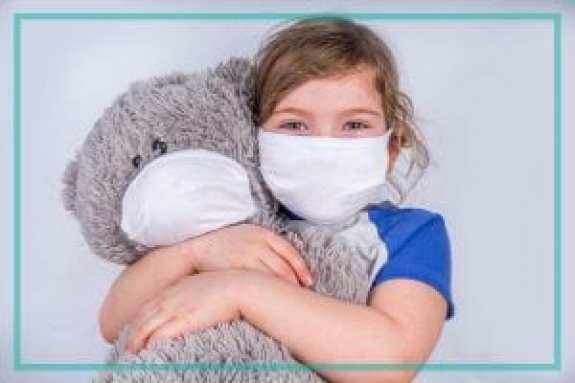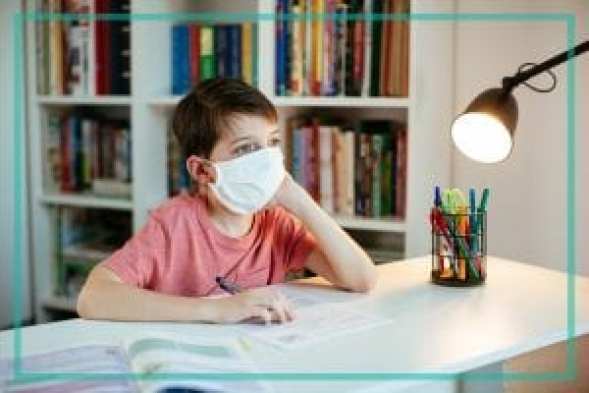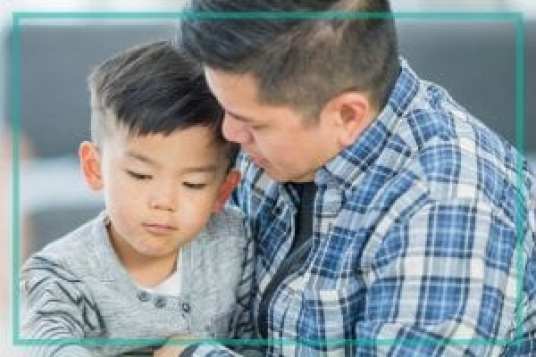

We are, without a doubt, living through uncertain times. Like most parents, you probably never expected that schools would shut down and you would be forced to homeschool your child(ren).
Homeschooling, distance-learning, and hybrid learning have all been a big adjustment for families, and many parents have lost their jobs or have been stripped of time during the day to work and fulfill household duties.
The sudden change to distance-learning has resulted in many children struggling to remain engaged and learn effectively. The “parent becoming the teacher” model has led to a high degree of parental stress, as parents try to help their children overcome the many challenges connected with this pandemic.
It can be hard to keep track of all the ways in which your children might be affected. Below, I outline the three main areas of concern I consider when thinking about the effects of our “new normal” on our children, and tips on how you can help them cope.
How is the pandemic affecting my child?
It can be overwhelming to think of all the ways in which the pandemic can affect your child. As a child/teen therapist and counselor, there are 3 main areas I look at when considering a child’s mental health:
1. Academic Performance
Many parents have been helping their child learn at home by reviewing school work, set up a reasonable pace for completing work, and providing assistance with turning on devices, reading instructions, and typing answers. Yet you may still be concerned that your child is struggling to be actively engaged or keep up with school work through online/at-home learning.
*For parents of children with diagnosed learning differences or other special needs (e.g., ADHD, autism, intellectual disability), all of this stress can be that much more magnified! Your child might not be receiving the required Individualized Education Program (IEP) or other specialized learning or behavioral services (e.g., social skills training, occupational therapy, and speech/language therapy) in the online/at-home learning environment.

2. Social Development
Social distancing guidelines and quarantines have likely impacted the way or degree to which your child interacts with their friends. You may be worried that your child or teen struggles to stay connected with their friends or that it will be difficult for them to adjust when they return to school for in-person learning.
Because not all children and teens respond to stress the same way and the adjustments vary by a child’s age group, the task of meeting your child’s social needs is not an easy task as the pandemic continues.

3. Mental Health
Lastly, your child or teen might be experiencing any number of mental health issues related to the outcome of COVID-19.
Changes in your child’s behavior such as a decline in grades, avoiding school, irritability, excessive worry, depressed mood, stomach aches, headaches, difficulty concentrating, unhealthy eating habits, difficulty sleeping, or substance use (e.g., alcohol, tobacco, marijuana, etc.), can show that your child may be struggling to cope; and are especially important to watch closely during these unusual times.

What Can I Do to Help My Child?
As the pandemic rages on, families around the world are finding more creative ways to cope. Below are some tips to help you find what will work for you and your family.
School Performance
If you are worried about your child’s school performance, it may help to work with your child’s teacher or other school administrators directly to address your specific areas of concerns.
These types of conversations are really important if your child relies heavily on school-based services that are only available at school.
If you are struggling to identify exactly what services or support your child may need, you may consider consulting with a psychologist.
A psychologist or counselor who is trained in working with children/teens to help you learn how to best advocate for your child during this difficult time.

Social Development
If you are a parent who is worried bout your child’s social development, you might consider multiple solutions based on their age and specific needs.
Moms and Dads of very young children (i.e., under the age of 5) can help their children pick out uncomfortable feelings (e.g., anger, fear, anxiety) and stay connected to friends by reaching out to other parents and hosting online playdates.
Parents of elementary school-age children might consider having an open chat about their feelings about social isolation and how the school will look different when they return (e.g., the layout of desks, staying in during lunchtime, etc.).
When your child returns to school, consider talking to them about their interactions with classmates, and assure your child that any feelings they have are normal.
Talking about such matters with your child or teen is not always easy and can feel uncomfortable, at which time you might consider meeting with a therapist about how to ease such conversations.

Emotional Well-Being
Parents worried about their child’s emotional well-being can help them cope with feelings of anxiety and depression by answering any question they may have about the virus.
You may also choose activities for your children to take part in such as listening to music or playing a game (e.g., Scrabble, Uno, Charades).
Ultimately, if you are unsure about how your child is coping emotionally, you might consider reaching out to a mental health provider for additional support and guidance.

No Comments yet!